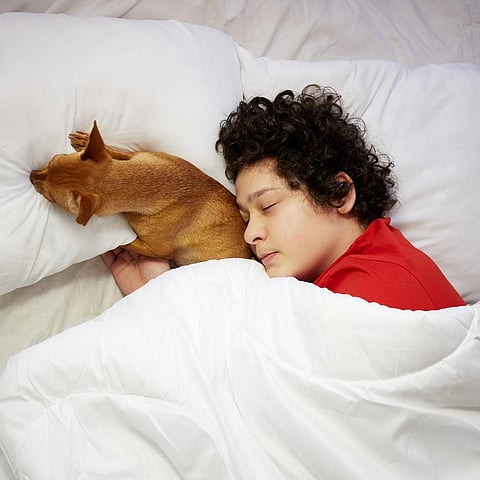

Humans do not hibernate, but we may require extra sleep in colder months, suggested a new research.
People experience greater REM (rapid eye movement) sleep in winter than in summer, noted the findings of a sleep analysis published in the journal Frontiers in Neuroscience February 17, 2023.
Also read: For a good night's sleep
If the findings can be confirmed in those with healthy sleep, this would be the first concrete proof suggesting we change sleep patterns with respect to seasons.
“Seasonality is ubiquitous in any living being on this planet,” Dr Dieter Kunz, corresponding author of the study, told media. People may dream while in REM sleep as brain activity is increased at this phase.
A typical sleep cycle starts with three phases of non-REM sleep followed by one brief REM state.
“In our study we show that human sleep architecture varies substantially across seasons in an adult population living in an urban environment,” Kunz added.
Participants of the analysis slept for around an hour more in the winter than in the summer, but this result was not deemed statistically significant.
REM sleep, which is known to be closely related to the biological clock and is impacted by light changes, however, lasted 30 minutes longer in the winter than in the summer.
“In general, societies need to adjust sleep habits including length and timing to season, or adjust school and working schedules to seasonal sleep needs,” Kunz added.
A team of researchers under Aileen Seidler from Kunz’s working group at the Charité Medical University, Berlin, selected 292 participants who had undergone polysomnography — sleep tests.
Participants were requested to fall asleep naturally without using an alarm clock in a specific laboratory where the length and kind of sleep, as well as their quality and type, were observed.
Humans do not hibernate due to two factors. First, humans have migrated into temperate and sub-arctic latitudes; their evolutionary ancestors were tropical animals with no history of hibernation.
It isn’t nearly long enough for us to have developed all the metabolic modifications required to hibernate.
Secondly, humans learned to use fire, clothing, shelter, hunting and agriculture — all much more efficient means of surviving the cold.